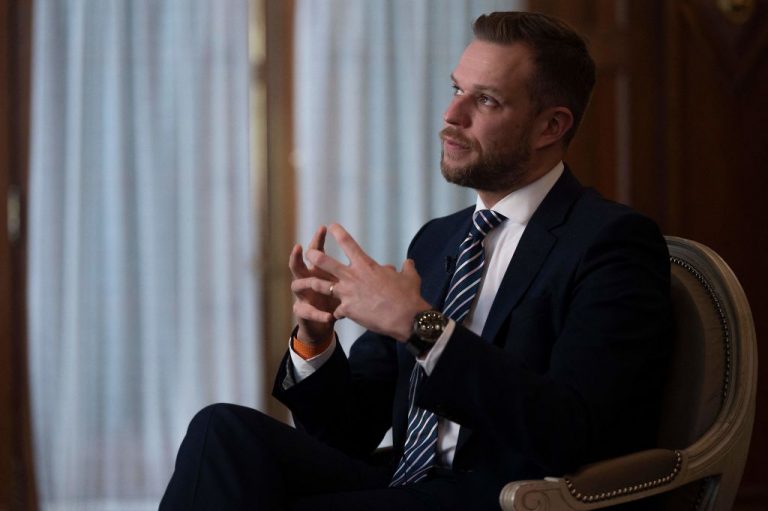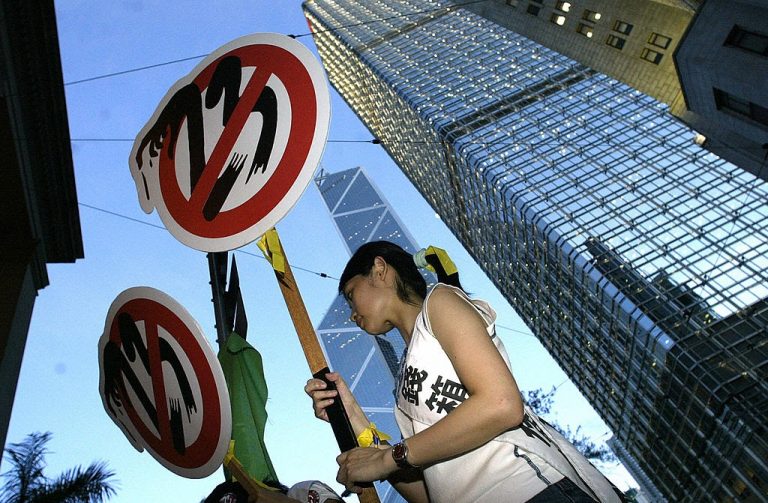Tensions rose between Beijing and Vilnius on Nov. 18 after Lithuania opened a de facto diplomatic office for Taiwan, with Beijing decrying the move calling it an “extremely egregious act.”
In retaliation, Beijing, with a Gross Domestic Product (GDP) that dwarfs that of Lithuania’s by over 260 times, downgraded economic and diplomatic ties with the country and imposed several economic measures, making life harder for the roughly 2.7 million people of the Baltic state.
“In the short term, it is painful for any country when your contracts are cut,” Lithuania’s Foreign Minister Gabrielius Landsbergis told Reuters in an interview on Sunday, “But it is short term because markets adapt. Companies adapt.”
Lithuania sets an example
Landsbergis said in an interview that his country might provide an example of how to withstand pressure from China regardless of its greater economic power.
“I think that the biggest lesson out of Lithuania is that economic coercion does not necessarily mean that the country needs to step away from independent foreign policy decisions,” Landsbergis said about the consequences of opening the embassy, according to AFP.
Success
You are now signed up for our newsletter
Success
Check your email to complete sign up
“Probably you’ll be threatened, you’ll be shouted at in the headlines in Chinese media, but nonetheless, you can withstand that,” Landsbergis said, adding that China’s aggressive reprisal attitude “is not diplomacy” but “coming from the position of power and coercing countries.”
The foreign minister expressed his confidence that his country would find partners closer to home to maintain supply chains.
“So much of what we produce is partially produced with, or within, China. This is why we need to find ways to create supply chains and how to make them more resilient so they can withstand this coercion, the cutting of contracts, the secondary sanctions,” Landsbergis said.
NATO
The Foreign Minister was also ardent about Lithuania’s “ironclad” allegiance to NATO in the event of an armed conflict between Taiwan and Beijing.
“We have to understand that every country now is involved in the Indo-Pacific,” Landsbergis said.
“Some of our NATO allies are taking big responsibility in the region, offering security guarantees to countries, and that means that we also have to have at least an understanding of what’s going on or probably play some part in this,” he said.
Meanwhile, his country is bogged down in an ongoing conflict over refugees with neighboring Belarus, which is neither a NATO nor EU partner.
Belarus conflict
Lithuania has repeatedly called out Belarus’ leader Lukashenko for flooding the EU’s eastern borders with migrants in an alleged attempt to destabilize the union and put pressure on the EU to ease sanctions it imposed on Belarus.
READ MORE: When the Government Turns Hostile: Life for the Unvaccinated Made Virtually Impossible in Lithuania
“That was a never-ending story. So we are seeing that he might want to create something like that with the migrants,” he said, referring to Lukashenko.
Belarus, or White Russia, brought in tons of migrants predominantly from Syria while neighboring Lithuania, Latvia, and Poland have barbed-wired their frontiers to keep everyone out, much to the delight of Landsbergis. “Belarus now has the migration crisis that Lukashenko brought upon himself,” he told Foreign Policy in September.
Meanwhile, Lithuania provided asylum to White-Russian opposition leaders like Svetlana Tikhanovskaya, who claims to have won last year’s parliamentary elections.
Landsbergis also remarked on Belarus’ close ties with Russia and Vladimir Putin, who he thinks ultimately holds control over its tinier neighbor; a situation which might spell conflict with NATO allies in the future.
“So there is a possibility that Putin would create enough fires for us not to understand where the next move will be so that the next day we wake up to the reality that basically Belarus is under control of the Russian military.”
“Lukashenko’s regime is probably almost indistinguishable from Putin himself, but there is still a lingering flame of sovereignty,” Landsbergis said.

















